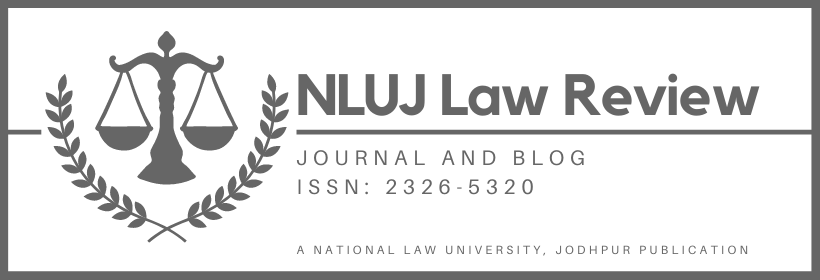“It is no doubt true that there are many cases in which the criminal could not have known that he was breaking the law, but to admit ignorance as an excuse at all would be to encourage ignorance where the law-maker has determined to make men know and obey, and justice to the individual is rightly outweighed by the larger interests on the other side of the scales.” – Oliver Wendell Holmes, Jr.
The Contentious Doctrine
Oliver Wendell Holmes, Jr. (“Holmes”), one of the most popular jurists of all time, aptly explained the justification behind the wide acceptance of the ‘ignorance of law is no excuse’ doctrine (“the doctrine”). The correct rationale behind the ignorance rule is not that everyone is supposed to know the law but that if it were allowed as a defence, then every offender would plead ignorance. There exists no satisfactory way to counter such a plea. Therefore, in a clash between legal positivism and legal moralism, the former trumps the emphasis on justice for each individual. Moral considerations may be side-lined by practical difficulties in the process of law. Utilitarianism also justifies the application of this doctrine, if the society is benefited as a whole.
The doctrine, if applied strictly, strikes at the bases of many offences rooted in the necessary requirement of intent or mens rea. Can a person be held guilty of an act, which in her knowledge, was not prohibited by the law? The critics of the doctrine also draw analogies with the defence given to a person with unsound mind, who may be acquitted by holding that he/she could not appreciate the fact that what he/she did was wrong or prohibited by law. An ignorant person would also be placed in a similar situation but the ignorance rule disallows such a defence.
Indeed, the Holmesian concerns are not misplaced. If ignorance of law is allowed as a general defence, it will undoubtedly be disastrous for the system of justice. Every legal proceeding will then begin with the impractical process of ascertaining the defendant’s/accused’s knowledge. Any justice delivery system, regardless of the quantum of pendency, will not be able to sustain under such unrealistically cumbersome process.
On the other hand, jurists like Jerome Hall have criticized the doctrine for failing to meet the standards of justice and fairness. A general adherence to the doctrine, although convenient for the legal machinery, denies consideration to even reasonable ignorance. Such an approach fails to account for tangible socio-economic disparities. However, most judiciaries across the globe, including India, have applied the maxim without any significant reservations, both in criminal and civil law.
State of Maharashtra v. M. H. George – Was the doctrine accepted without refinement or reservations?
There have been very few instances when Indian courts have questioned the reasonableness or applicability of this doctrine. These scant instances need exposure to highlight the implications of an unchallenged application of the doctrine in the Indian socio-legal terrain.
The most popular encounter with the doctrine in our legal record came in State of Maharashtra v. Mayer Hans George (“M.H. George”). The case is considered to be landmark judgement that upheld the validity of the doctrine. However, within the judgment are many instances that qualify the rejection of ignorance of law as a defence.
The dissenting opinion of Justice Subba Rao (“Justice Rao”) is germane. It did not question the fairness of the doctrine but carved out an exception to it. Justice Rao held that in cases where there is no statutory compulsion to publish the law in the official gazette, the maxim cannot be invoked. In such cases the prosecution has to prove that the accused could have had the knowledge if she were not negligent, or if proper inquiries were made. Though not explicitly stated, the opinion of Justice Rao was an attempt to incorporate the ‘reasonable person’ test to the doctrine, in such limited cases where notifications or by-laws were involved.
The majority opinion also contains some interesting views. The Justices observed that knowledge of the law is not relevant except for the issue of sentence to be imposed. This observation has far-reaching implications for the issue of ignorance of law. It leaves a huge scope for the argument of ‘ignorance of law’ to be made and considered by the courts on the question of sentence to be imposed. Though not the crux of the opinion, the presence of such a view in the majority opinion can be a potential ground for the courts to appreciate the ignorance of law defence on merit. The ignorance, if reasonable and justified, can then become a mitigating factor while imposing the sentence. Such a consideration would be in concord with the ‘individualization of punishment’ principle that needs much more consistency in the Indian sentencing procedure.
Taking a view contrary to that of the majority opinion, R. L. Narsimham, former member of the Law Commission, sided with Justice Rao in his separate note in the 42nd Law Commission Report. He proposed to insert Section 79A in the Indian Penal Code which reads as –
“79A. Notwithstanding anything contained in sections 76 and 79, nothing is an offence where the act alleged against an accused is contravention of a provision of a rule, by-law, order or notification made under an Act of Legislature, if at the time of such contravention the accused could not have with due diligence been aware of the said provision.”
The proposal was to insert a ‘due diligence’ test, similar to the one proposed by Justice Rao, in cases of contravention of secondary laws, the purpose of which is usually to regulate conduct and not to punish heinous offences. It was proposed that such a test should account for the accused’s mental and educational capabilities, her status in society, and the novelty of the law. The note also disapproved with the majority view in M. H. George by emphasizing on full acquittal in such cases instead of a lower sentence because of the stigma associated with conviction.
Position Post M. H. George – A Few Pertinent Observations and Deviations
Judicial pronouncements that followed M.H. George primarily accepted the doctrine and focussed on the related technicalities. The major ruling in this regard is Universal Cans and Containers Ltd. v. Union of India, wherein the Delhi High Court held that the doctrine is applicable not when the law is printed in the Official Gazette but when it is made available to the public. The judgment has the indirect effect of rendering a law inapplicable unless it is published for the masses. Considering a similar issue in Bipin M. Pujara v. Commissioner of Customs, the Calcutta High Court observed that it is the duty of the Executive to make all reasonable efforts to make the law known to the public. The right to have information about the law has also been linked to Article 21.
In civil matters, the doctrine has been scathed by a few judicial decisions and observations spread across time and jurisdictions. The socio-economic realities of India have been correctly acknowledged in these instances to question the applicability of the maxim. The Karnataka High Court, in P. Amarnatha Shetty v. Vishweshwara Bhat, relaxed the rigours of the Limitation Act, 1963 and held that the doctrine cannot be applied in context of the widespread illiteracy and backwardness in India. In Subhasish Mondal v. Union of India, delay in contravention of a law was condoned due to the lack of legal awareness in rural areas.
In Tanaji Abaso Pawar v. State of Maharashtra, the Bombay High Court accounted for the prevailing illiteracy and bureaucratic red-tapism and refused to apply the doctrine because otherwise it would encourage predatory behaviour by the government. On a different occasion, the Punjab and Haryana High Court has even unequivocally questioned the aptness of the ancient doctrine in the modern context. The Court observed that doctrine is inappropriate in an era when subordinate legislations are frequently tweaked without restraint. These judgments have not received either any publicity or judicial acceptance. Limiting the scope and applicability of the doctrine is necessary for matching the legal and socio-economic terrain.
In criminal matters, however, the courts have been cautious in not allowing any chink in the doctrine’s armour. Even the slightest of relaxations of the doctrine in criminal law, especially for crimes mala in se, can have disastrous repercussions. However, the lack of any awareness regarding what might constitute an offence may pose some serious questions regarding this approach.
Although not commonly recognized or discussed, oblivion about what constitutes a criminal offence promotes criminal behaviour. A pertinent example would be the offence of rape-by-deception. It is noteworthy that the contours of consent have expanded over time and are still not fully appreciated or understood by a significant number. Ignorance or lack of awareness about what constitutes or what might constitute a violation of consent may negate deterrence, against say “non-violent” forms of rape like rape by false promise of marriage, among the ignorant. It becomes crucial for the masses to understand that the promise of marriage cannot be hurled at women to deceive them into having intercourse and that such conduct may amount to rape. Such ignorance of law stemming from dearth of legal education, as observed in Anand P. Chanar v. State of Maharashtra, ruins young lives. Such ignorance may also hinder reporting of crime where the victim might not know that the conduct of the perpetrator was, in fact, prohibited by the law. Although ignorance cannot be pardoned for criminal offences, it may very well have the potential to decide the dynamics of some criminal offences.
Suggestions and Conclusion
The very case which is popularly believed to have firmly established the applicability of the maxim in the Indian judicial system, has left ample scope for entertaining the defence of ignorance of law if the situation warrants. The raw application of the maxim has been relooked and criticized in a relatively modest number of cases. However, the common stand taken by the courts remains to be the outright rejection of the excuse.
The Indian socio-economic realities call for a change. Illiteracy is rife and awareness even about the legal provisions pertaining to inherent offences is scant among a big chunk of the population. The situation is worse for various procedures, notifications, by-laws, etc. It would only be unfair to proceed with the presumption that all people know the law.
The concerns of eminent jurists hold valuable merit. The justice delivery system is correctly apprehended to collapse if the general defence of ignorance of law is afforded to the people. The doctrine, however, should be relaxed in matters pertaining to civil laws, regulatory laws, procedures, notification and by-laws if the situation demands so, and the ignorance was reasonable and could not have been avoided. Although imprisonment is rare for such wrongs/offences, if such a case may arise, the defendant/accused should be made to pay compensation only, if any, and punitive penalty of any kind should not be imposed. The ‘due diligence’ test should become a canon rather than merely being a remnant in a handful of judgments. The burden is also on the state to ensure that the citizens are aware of the law. Widespread publicity of changes in the law should be a part of the law-making process itself. Basic legal education should become an essential part of school-level curriculum. The expectation of the citizens being law-abiding cannot justifiably work with the prevailing legal oblivion. Eradicating ignorance of law at the grassroots level will be extremely fruitful for the overall growth and advancement of the country.
This article has been authored by Shubh Arora, student at National Law University, Delhi.



